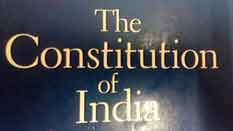Land In Limbo: State’s Unauthorized Transfers To Private Entity
Case Brief:
There is a need to provide the acquisition of land to a company which is a public company by its name as well as status.
Rule of Law is one of the basic structures of Indian Constitution. Equality before law is a principle of Rule of Law. Constitution is the supreme law of the land as sovereignty lies in the people of India.
However, the Rule of Law often faces challenges due to Austinian ideology which states that Law is the command of sovereign backed by sanction. Still, Rule of Law including its principle of equality is mostly litigated concepts of Judiciaries of the world. Thus, the principle invoked in the judgment of Anil Agarwal Foundation Etc. Etc. vs State of Orissa is relevant and prevalent as it is the key principle of law, which originated from English common Laws and followed by democracies of the world.
Case Summary:
In the Supreme Court of India
(Before M.R. Shah and Krishna Murari, JJ.) [1]
Anil Agarwal Foundation Etc. Etc.
v/s
State of Orissa and Others[2]
CIVIL APPEAL NOS. 1144-1146 OF 2011[3]
Decided on April 12, 2023[4]
Facts
Anil Agarwal Foundation altered its name from Private company to Public company, that is, from Vedanta Foundation to Anil Agarwal Foundation, respectively. It is notable that demand for land required was highly exaggerated. Thus, huge tract of Agricultural land is acquired by Anil Agarwal Foundation. The land acquired by Anil Agarwal Foundation was adjacent to Wildlife Sanctuary, with two rivers passing from acquired land, and is owned by the State. Thus, undue advantage is gained by Anil Agarwal Foundation from Odisha Government.
Issues:
The case concerned acquisition and requisition of land by Anil Agarwal Foundation. A company which changes its name for acquiring huge tracts of land. Accordingly, the company was held liable by Court for the same. Hence, the central issue was that:
Ruling
The Supreme Court stated that the High Court was justified in setting aside the entire acquisition proceedings due to non-compliance of the statutory provisions, by Anil Agarwal Foundation and State Government, under the Land Acquisition Act of 1894 and the Land Acquisition (Companies) Rules, 1963. These statutory provisions were vitiated by mala fides and favouritism of Odisha Government. The entire acquisition proceedings are violative of Article 14 of the Constitution of India[6]. Thus, there is non-application of mind on relevant aspects.
The Supreme Court, by completely agreeing with the view of the High Court, held that all appeals shall be dismissed and Anil Agarwal Foundation has to deposit Rs. 5 lakhs[7] as compensation.
Rationale
The Odisha government had extended undue benefits and undue largesse to the Vedanta Foundation. The Supreme Court listed the reasons behind its conclusion, which includes following arbitrary actions of the State Government: immunity from reservation laws of the State, four - lane road from Bhubaneswar to the proposed site, exemption from all state levies/taxes/duties, no-objection certificate for the project from the state pollution control board, all clearances from the central government as well as environmental clearances, etc[8].
These extended undue benefits and undue largesse is in accordance with the MoU, which is signed by the Vedanta Foundation and the Odisha government in July 2006 for setting up the university. The following arbitrary actions are unconstitutional as well as not in accordance with Land Acquisition Act 1894 as the proposed university is a private company.
The land is not a disputed land as the land is acquired by the State government under the concept or Doctrine of Public Trust. The government was required to deal with the lands belonging to private landowners, particularly, agricultural landowners in accordance with law, thus Supreme Court observed that there is non – application of mind
The judges in their judgment took note of Wildlife century which is adjacent to that land and has two rivers "Nala" and "Nuanai": large scale construction of proposed university was adversely affecting the sanctuary, the entire ecosystem, and the ecological environment. [9]
Conclusion:
In general, the Anil Agarwal Foundation case remains predominant and continues to reinforce Rule of Law including its principle of equality. In this case, Mala fides and favouritism violates Rule of Law, Principle of Natural Justice, Article 14 of the Indian Constitution [10]and Doctrine of Public Trust.
End Notes:
There is a need to provide the acquisition of land to a company which is a public company by its name as well as status.
Rule of Law is one of the basic structures of Indian Constitution. Equality before law is a principle of Rule of Law. Constitution is the supreme law of the land as sovereignty lies in the people of India.
However, the Rule of Law often faces challenges due to Austinian ideology which states that Law is the command of sovereign backed by sanction. Still, Rule of Law including its principle of equality is mostly litigated concepts of Judiciaries of the world. Thus, the principle invoked in the judgment of Anil Agarwal Foundation Etc. Etc. vs State of Orissa is relevant and prevalent as it is the key principle of law, which originated from English common Laws and followed by democracies of the world.
Case Summary:
In the Supreme Court of India
(Before M.R. Shah and Krishna Murari, JJ.) [1]
Anil Agarwal Foundation Etc. Etc.
v/s
State of Orissa and Others[2]
CIVIL APPEAL NOS. 1144-1146 OF 2011[3]
Decided on April 12, 2023[4]
Facts
Anil Agarwal Foundation altered its name from Private company to Public company, that is, from Vedanta Foundation to Anil Agarwal Foundation, respectively. It is notable that demand for land required was highly exaggerated. Thus, huge tract of Agricultural land is acquired by Anil Agarwal Foundation. The land acquired by Anil Agarwal Foundation was adjacent to Wildlife Sanctuary, with two rivers passing from acquired land, and is owned by the State. Thus, undue advantage is gained by Anil Agarwal Foundation from Odisha Government.
Issues:
The case concerned acquisition and requisition of land by Anil Agarwal Foundation. A company which changes its name for acquiring huge tracts of land. Accordingly, the company was held liable by Court for the same. Hence, the central issue was that:
- Whether the Anil Agarwal Foundation, The Beneficiary Company, is a public company in terms of the definition under section 3(1)(IV) of the Companies Act, 1956 and can the private guarantee limited company be converted to public company under section 25 of the Companies Act?
Ruling
The Supreme Court stated that the High Court was justified in setting aside the entire acquisition proceedings due to non-compliance of the statutory provisions, by Anil Agarwal Foundation and State Government, under the Land Acquisition Act of 1894 and the Land Acquisition (Companies) Rules, 1963. These statutory provisions were vitiated by mala fides and favouritism of Odisha Government. The entire acquisition proceedings are violative of Article 14 of the Constitution of India[6]. Thus, there is non-application of mind on relevant aspects.
The Supreme Court, by completely agreeing with the view of the High Court, held that all appeals shall be dismissed and Anil Agarwal Foundation has to deposit Rs. 5 lakhs[7] as compensation.
Rationale
The Odisha government had extended undue benefits and undue largesse to the Vedanta Foundation. The Supreme Court listed the reasons behind its conclusion, which includes following arbitrary actions of the State Government: immunity from reservation laws of the State, four - lane road from Bhubaneswar to the proposed site, exemption from all state levies/taxes/duties, no-objection certificate for the project from the state pollution control board, all clearances from the central government as well as environmental clearances, etc[8].
These extended undue benefits and undue largesse is in accordance with the MoU, which is signed by the Vedanta Foundation and the Odisha government in July 2006 for setting up the university. The following arbitrary actions are unconstitutional as well as not in accordance with Land Acquisition Act 1894 as the proposed university is a private company.
The land is not a disputed land as the land is acquired by the State government under the concept or Doctrine of Public Trust. The government was required to deal with the lands belonging to private landowners, particularly, agricultural landowners in accordance with law, thus Supreme Court observed that there is non – application of mind
The judges in their judgment took note of Wildlife century which is adjacent to that land and has two rivers "Nala" and "Nuanai": large scale construction of proposed university was adversely affecting the sanctuary, the entire ecosystem, and the ecological environment. [9]
Conclusion:
In general, the Anil Agarwal Foundation case remains predominant and continues to reinforce Rule of Law including its principle of equality. In this case, Mala fides and favouritism violates Rule of Law, Principle of Natural Justice, Article 14 of the Indian Constitution [10]and Doctrine of Public Trust.
End Notes:
- SCC OnLine SC 407.
- Ibid.
- Ibid.
- Ibid.
- Ibid.
- The Constitution of India Act, 1950.
- SCC OnLine SC 407.
- Ibid.
- Ibid.
- The Constitution of India Act, 1950.
Award Winning Article Is Written By: Ms.Anamika Tyagi
Authentication No: MY413367220283-12-0524
Law Article in India
Legal Question & Answers
Lawyers in India - Search By City
LawArticles
How To File For Mutual Divorce In Delhi

How To File For Mutual Divorce In Delhi Mutual Consent Divorce is the Simplest Way to Obtain a D...
Increased Age For Girls Marriage

It is hoped that the Prohibition of Child Marriage (Amendment) Bill, 2021, which intends to inc...
Facade of Social Media

One may very easily get absorbed in the lives of others as one scrolls through a Facebook news ...
Section 482 CrPc - Quashing Of FIR: Guid...

The Inherent power under Section 482 in The Code Of Criminal Procedure, 1973 (37th Chapter of t...
The Uniform Civil Code (UCC) in India: A...

The Uniform Civil Code (UCC) is a concept that proposes the unification of personal laws across...
Role Of Artificial Intelligence In Legal...

Artificial intelligence (AI) is revolutionizing various sectors of the economy, and the legal i...









Please Drop Your Comments